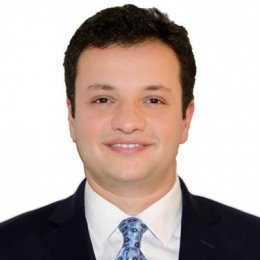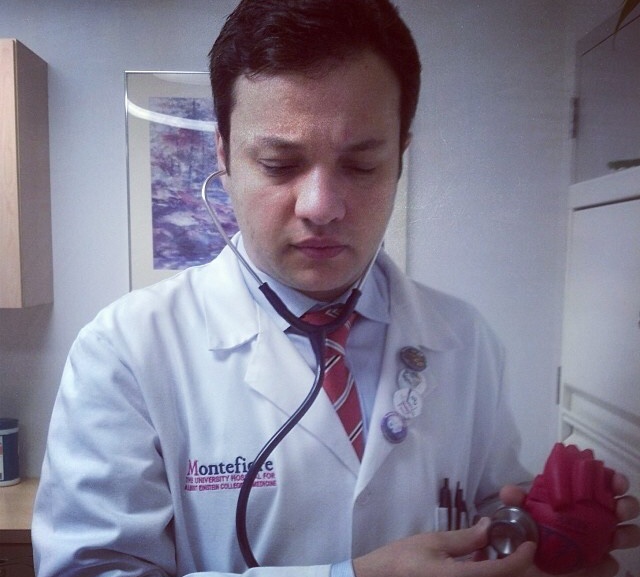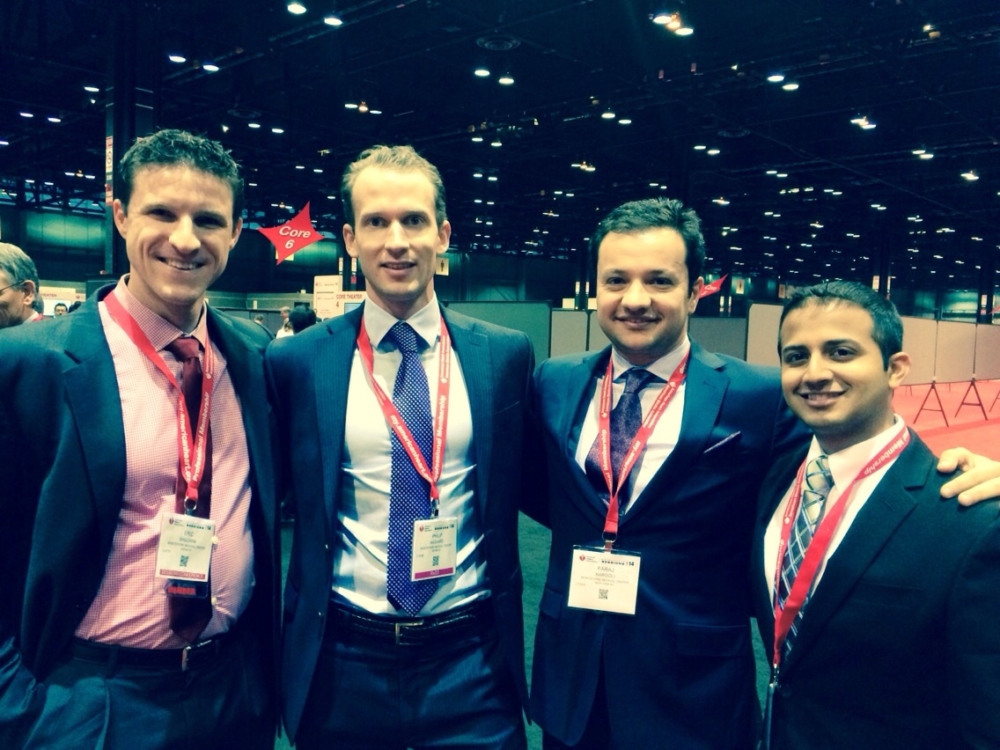Describe your research & the program/lab (info of your supervisor) that you are in?
I am an independent investigator and statistician for the Montefiore Einstein Heart rhythm/ECG research Group, wherein I participate in the design of several large epidemiological studies, and industry sponsored clinical trials under the supervision and leadership of Dr. Kevin Ferrick, MD (professor of Internal Medicine). By cross-referencing the ECG database with electronic medical records, our group is able to study abnormalities as they relate to morbidity and mortality within the inner-city populations. I also serve on the Medical Advisory Committee for the Hyponatremia pilot study that continues to provide educational modules and research for the care of individuals with hyponatremia. Additionally, I am employing the New York City Health Department geocode rankings to investigate the associations between socioeconomic status and mortality in patients admitted with atrial fibrillation.
What do you consider to be your substantial scientific contribution so far (provide Pubmed PMID if possible)?
My most memorable project was the design and analysis of an epidemiological study looking at the effect of blood pressure control and outcomes of patients who received left ventricular assisted devices at our institution: “Blood Pressure and Adverse Events during Continuous Flow Left Ventricular Assist Device Support” (PMID 25870369).
What is your favourite manuscript from a lab or mentor other than your own (provide Pubmed PMID if possible)?
I enjoy reading the new guide to statistics and methods from JAMA, which continuously refreshes my statistical and analytical methods. I recently read a very facinating article in the American Journal of Cardiology, entitled: “Characteristics and Outcomes of Patients Undergoing Percutaneous Coronary Intervention Following Cardiac Arrest” PMID: 24513475.
What facilities are essential for your research?
Ideally large databases!
Where do your research strengths lie? Why? What are your research weaknesses? How will you improve?
My research strengths lie in the design of advanced epidemiological methods, and complex statistical analyses.
What upcoming conferences will you be attending, and what is the furthest distance that you have traveled for a conference?
I will be attending the Heart Rhythm Society in the States in May 2015 and the ISH/NIN in Milan in June 2015.
How did you learn about ISH/NIN and its activities?
I am very much interested in scientific sessions and conferences globally. I have learned about the ISH/NIN from other investigators in the field.
What area(s) do you wish to specialize in the future?
My immediate goal is to be an academic physician and an interventional cardiologist. My hope is to contribute to research, teaching, and patient care at an academic center.
Who is your role model in Science? Why?
My role model in science is my mentor, Dr. Kevin Ferrick. His clinical knowledge, patient care, and research experience inspire me to excel in the field.
Are you involved in other scientific or career associations? If yes, how is it helping in your career advancements?
I am an active member of several associations, including the Columbia University Alumni Association (CAA), the American College of Cardiology (ACC), American Society of Nephrology (ASN), and American Society of Echocardiography (ASE). In addition, I am a research consultant for several departments at our institution, including the Departments of Cardiology, Nephrology and Gastroenterology. Working for these departments have allowed me to develop insight into disease prevalence at urban medical centers, expand statistical skills, and perform advanced analysis to operate as a versatile and effective physician scientist.
What are your scientific goals? Advise for talented emerging scientists?
My ultimate goal is to become a principal investigator of large clinical trials in cardiovascular medicine. I highly recommend emerging scientists to think outside of the box, to attain the craft of research, and to be very well rounded in clinical and translational research. Finally, finding the right mentor is one of the most important factors for a successful career.























